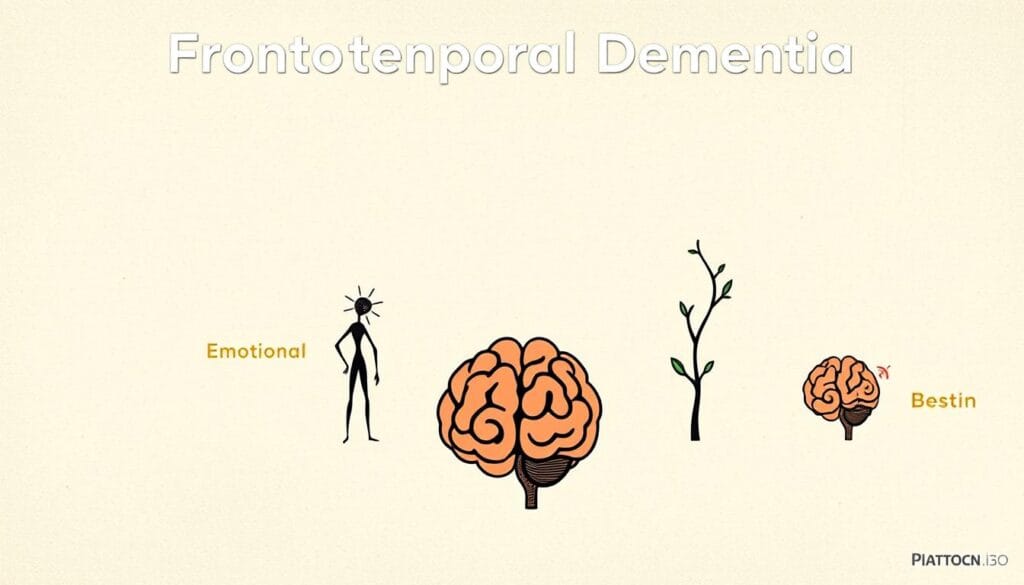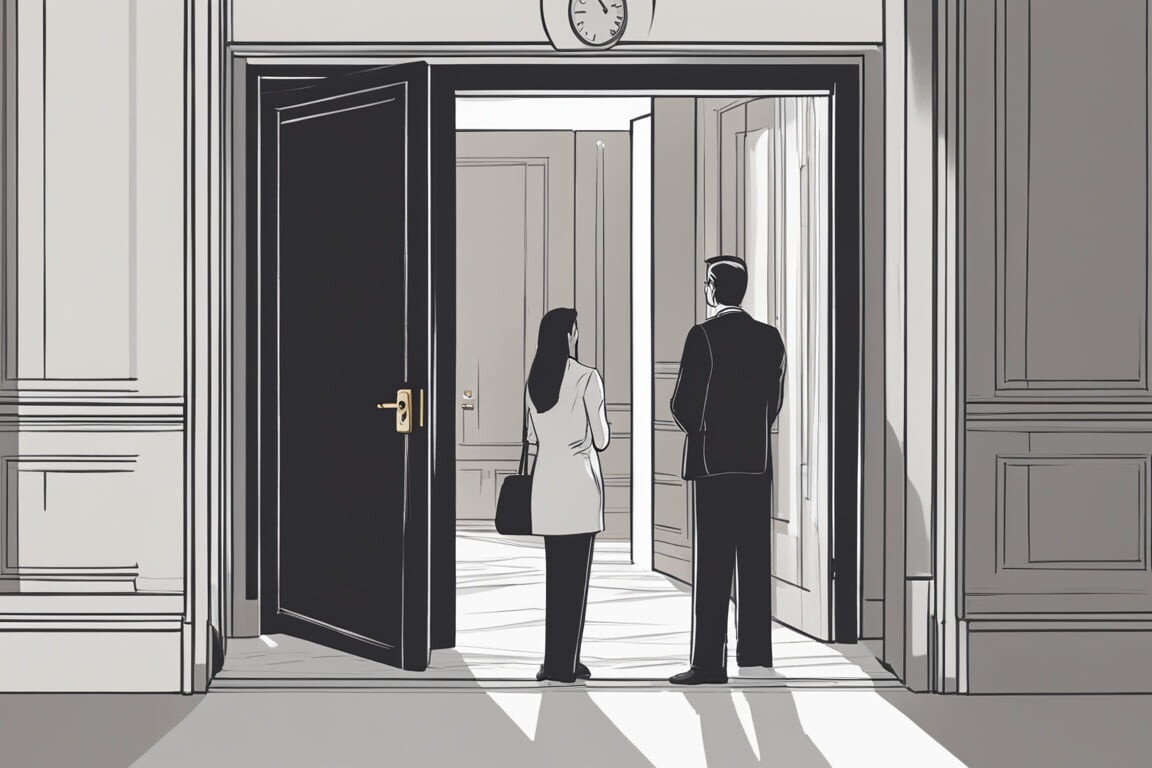Dr. Chandril Chugh is a top adult neurologist in Patna. He knows how important it is to deal with mental health quickly and fully This article will look at mental health rehab. We’ll talk about when you might need treatment, the kinds of disorders that need it, and how to get the best care.
Mental health rehab is key for people with many neurological and psychological problems. This includes frontotemporal dementia and Tourette syndrome. By spotting mental health signs early and knowing the risks of not treating them, you can help your loved ones or yourself a lot.
Table of Contents
ToggleUnderstanding the Need for Mental Health Rehabilitation
It’s important to spot early signs of mental health problems. Small changes like trouble focusing or memory issues can mean big problems. If not treated, these can make daily life much harder.
Recognizing the Signs of Mental Health Issues
Here are some signs you might need mental health help:
- Persistent changes in mood, energy levels, or sleep patterns
- Difficulty concentrating, making decisions, or remembering information
- Withdrawal from social activities or a loss of interest in hobbies
- Unexplained physical symptoms, such as headaches or fatigue
- Significant changes in behavior or personality
Impacts of Untreated Mental Health Conditions
Ignoring mental health problems can cause big problems. People with severe mental health issues often feel unhappy and have a low quality of life. They might also lose their independence and struggle with daily tasks.
Getting help early can prevent these problems. It can improve your life and help you feel better. By facing mental health issues head-on, you can take back control and live a happier, more independent life.

Types of Mental Health Disorders Requiring Rehab
There are many mental health disorders that need rehab. These include frontotemporal dementia, Alzheimer’s disease, and others. Each one has its own challenges that need special treatment.
Frontotemporal dementia affects the brain’s frontal and temporal lobes. It changes behavior, personality, and language. Alzheimer’s disease is the most common dementia. It causes memory loss, thinking problems, and behavior changes.
- Depression makes people feel sad, hopeless, and lose interest in things.
- Anxiety disorders include too much worry, fear, and physical symptoms.
- Bipolar disorder causes big mood swings, from being very happy to very sad.
These disorders need detailed rehab programs. They help people manage symptoms, feel better, and live independently again.

Mental health rehab: A Comprehensive Approach
For mental health rehabilitation, a complete plan is key. It needs a team of experts, like therapists and caregivers. They work together to make a treatment plan that fits the person’s needs.
Evidence-based therapies are at the core. These include cognitive-behavioral therapy (CBT) and managing medications. CBT helps change bad thought patterns. Medications help with symptoms of mental health issues.
This approach also looks at other health issues. It’s about treating the whole person, not just their mental health. This way, the treatment plan can help with many health problems at once.
Residential treatment programs are a big part of this plan. They offer constant support and many therapies. These programs help people grow and learn in a safe place.
In the end, every person’s recovery path is different. By using proven therapies and a team of experts, mental health rehab helps people take back their lives. They learn to cope better and improve their relationships.

Stages of Frontotemporal Dementia and Treatment Options
Frontotemporal dementia (FTD) is a brain disorder that affects the frontal and temporal lobes. Knowing the stages of FTD is key for the right care and support. Let’s look at the different phases and treatment choices.
Early Stages: Mild Cognitive Changes and Behavioral Shifts
In the early stages, people might find it hard to make decisions or solve problems. They might also act differently, like being less social or changing their personality. It’s important to get medical help and try treatments like cognitive therapy early on.
Middle Stages: Language Difficulties and Impact on Quality of Life
As FTD gets worse, speaking and understanding can become very hard. This makes everyday life tough, especially when talking to others. Speech-language therapy can help with these issues and improve daily life.
Later Stages: Personality Changes, Memory Loss, and Severe Impairment
In the later stages, personality changes and memory loss get worse. People might lose empathy and have compulsive behaviors. A detailed care plan, including medication and support, is vital to keep their quality of life good.
It’s important to try different treatments as FTD progresses. This includes medication, therapy, and support. Working with doctors, support groups, and community resources helps both the person with FTD and their caregivers.

Rehabilitation Programs and Therapies for Mental Health
Finding your way to mental health recovery can be tough. But, the right programs and therapies can help a lot. Whether you need inpatient or outpatient care, a full plan is important. It helps meet your specific needs and leads to lasting improvement.
Inpatient and Outpatient Rehabilitation Settings
Inpatient care offers a structured, intense setting for those needing constant care. It includes many therapies, medicine management, and support. This helps stabilize symptoms and starts the recovery journey.
Outpatient care lets you get treatment while keeping up with daily life. It might include weekly therapy, group counseling, and more. These services are tailored to your needs and progress.
Specialized Therapies for Mental Health Disorders
- Cognitive Therapy: Changes negative thought patterns that cause mental health problems.
- Behavioral Therapy: Works on changing behaviors and finding ways to cope with symptoms.
- Occupational Therapy: Helps with skills for daily activities and staying independent.
- Physical Therapy: Deals with physical issues from mental health, improving overall health.
- Speech Therapy: Helps with communication or swallowing problems from mental health.
These therapies offer a complete recovery plan. They cover physical, cognitive, and emotional health. This way, mental health programs can help you fully recover.
The Role of Caregivers in Mental Health Rehabilitation
Caregivers are key in mental health recovery. They offer emotional support, practical help, and educational resources. These are vital for those with mental health issues to reach their recovery goals.
Emotional support is very important. Studies show that people with supportive families do better in treatment. Caregivers create a safe space for their loved ones to talk and share feelings.
Practical help is also crucial. Caregivers help with daily tasks and healthy habits. This support makes life easier and improves well-being during mental health recovery.
Learning about mental health is important for caregivers. Knowing about mental health and treatments helps them support their loved ones better. Resources like support groups and counseling help caregivers too.
In the end, caregivers are vital for mental health recovery. Their emotional, practical, and educational support helps people achieve their goals. This way, they can get back to living a good life.
- Offer emotional support and create a safe, non-judgmental environment
- Provide practical assistance in navigating the healthcare system and managing daily tasks
- Seek caregiver education to better understand the mental health condition and available treatment options
- Access resources like support groups and counseling to cope with the challenges and maintain personal well-being
Overcoming Challenges in Mental Health Rehabilitation
Starting a mental health rehabilitation journey is both rewarding and tough. People seeking help face many obstacles. These include stigma, financial issues, and limited access to care. But, with the right help and support, these hurdles can be cleared, leading to a successful recovery.
The big challenge is the social stigma around mental illness. This makes it hard for people to ask for help, fearing judgment or being judged. It’s key to spread awareness and education about mental health. This way, we can build a kinder and more understanding world.
Another big problem is not having enough access to good mental health care, especially in some areas. Mental health rehabilitation centers work to fill this gap. They offer treatments that fit each person’s needs. Also, pushing for more insurance coverage and funding for mental health can help more people get the care they need.
Money can also be a big obstacle. But, many treatment centers offer help with costs. They have flexible payment plans, financial aid, and work with insurance. Patients and their families should look into these options to find what works best for them.
Keeping patients and their caregivers involved is also very important. Using therapies that focus on the patient, talking openly, and getting loved ones involved in the plan helps. This makes the person more likely to stick with their recovery plan.
By tackling these challenges and using a complete approach to mental health care, people can find their way to lasting wellness. With the right support and resources, the journey to recovery can be smoother and more successful.
Conclusion
Mental health rehabilitation helps people with mental health issues to take back their lives. It lets them reach their highest potential. Healthcare teams use a detailed, custom care plan to meet each person’s needs.
This approach makes sure every patient gets the right help. It leads to a better life and recovery. It’s all about focusing on the person, not just their illness.
Success in mental health care comes from combining special therapies and proven methods. Caregivers play a big role too. They offer support and help the person feel whole again.
Starting your mental health journey is a big step. It’s a long-term effort, but with the right help, you can win. You can take back your life and find happiness again.
FAQ
Signs include small changes in behavior and how you think. You might notice changes in memory and focus. These changes can affect your daily life.
What are the consequences of leaving mental health conditions untreated?
Untreated mental health can lead to more brain problems. It can also change your personality and lower your quality of life.
What types of mental health disorders may require rehabilitation?
Disorders needing rehab include frontotemporal dementia and Alzheimer’s. Also, depression, anxiety, and bipolar disorder may need it.
How does the comprehensive approach to mental health rehabilitation work?
A team of experts works together. They include doctors, therapists, and caregivers. They create a plan tailored to you, using proven therapies and medicines.
What are the stages of frontotemporal dementia, and what treatment options are available?
Frontotemporal dementia has three stages. Early stages show small brain changes and behavior shifts. Middle stages bring language problems and big life impacts. Later stages have big personality changes, memory loss, and severe brain problems.
Treatment includes medicines, therapy, and support. This helps manage symptoms and improve life quality.
What rehabilitation programs and therapies are available for mental health conditions?
Rehab is available in hospitals and outpatient settings. Therapies include cognitive and behavioral therapy. Also, occupational, physical, and speech therapy are options.
What is the role of caregivers in the mental health rehabilitation process?
Caregivers offer emotional support and help understand the disease. They provide practical help to those in rehab. It’s also key to educate caregivers and offer them support.
What challenges may arise during the mental health rehabilitation process?
Challenges include stigma and barriers to care. Financial issues and keeping patients and caregivers involved are also big hurdles.
Source Links
About The Author

This article is medically reviewed by Dr. Chandril Chugh, Board-Certified Neurologist, providing expert insights and reliable health information.
Dr. Chandril Chugh is a U.S.-trained neurologist with over a decade of experience. Known for his compassionate care, he specializes in treating neurological conditions such as migraines, epilepsy, and Parkinson’s disease. Dr. Chugh is highly regarded for his patient-centered approach and dedication to providing personalized care.
→ Book a consultation to discover which remedies suit your needs best.




